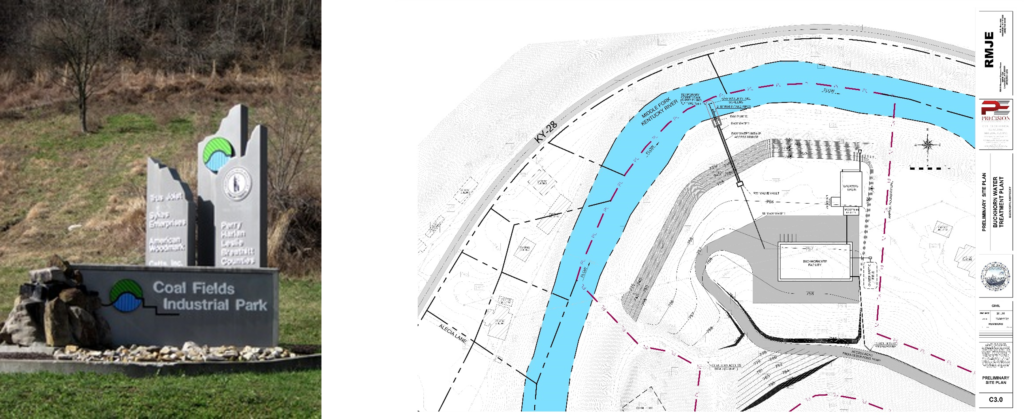Staff working at small organizations know that the key to stretching limited funding is to live out the motto ‘do less with more.’ Such organizations typically will have staff who are individually tasked with portfolios as disparate as handling technical processes while also managing a public relations strategy. That can-do spirit makes it all the more difficult when a new need arises that requires specific expertise beyond the knowledge of the team. Learning to ask for outside assistance can be challenging, but it sometimes can make the difference between just hanging on and truly thriving.
Such a dilemma arose for the small water system operated by the city of Hazard, Kentucky (population 5,200) when it set out to apply for a federal American Rescue Plan Act (ARPA) grant to improve and expand water capacity. Small water systems, which comprise 97% of all U.S. water utilities, each serve fewer than 10,000 customers. The system in Hazard was facing dual water crises. For years, the aging water treatment plant on the old fork of the Kentucky River had not been able to keep up with growing demand. Area residents had faced water shortages and backups and feared that without action they would enter into a full-blown drinking water crisis. Meanwhile, the new Coal Fields Industrial Park just north of town was finding that it was unable to attract much-needed employers and businesses without a stronger source of freshwater for industrial operations. These two crises of quality of life and economic opportunity had one solution: a new water treatment facility. Unfortunately, the water system’s revenues couldn’t support funding such an enormous project, and while new federal programs could have filled the funding gap, the system’s staff didn’t have the time or expertise for the complex grant writing process needed to pursue those opportunities.

The Kentucky River Area Development District (KRADD) partnered with the City of Hazard to land funding from US Economic Development Administration (EDA) to build a water treatment plant that will support the expansion of the Coal Fields Regional Industrial Park, a key regional employer (Credit: Perry County & City of Hazard)
Enter the Kentucky River Area Development District (KRADD), a regional development organization based in Hazard that serves an eight-county region of eastern Kentucky. KRADD’s deep engagement with small water systems in the region, including participation in the Kentucky Infrastructure Authority’s water infrastructure planning process, made it the ideal partner to take on a complex grant proposal for federal ARPA funding. Additionally, KRADD is also a federally-designated Economic Development District and participated as a critical sponsor of the Coal Fields Industrial Park. Teaming up with KRADD gave Hazard the necessary data collection and mapping expertise and helped KRADD to realize ancillary benefits for the region as a whole.
The fruits of this collaboration were on display this May, when the US Economic Development Administration announced that the city had been awarded a $5 million grant to construct the new water treatment plant. EDA praised the collaboration between KRADD and Hazard, noting that the project will bring at least 364 new industrial jobs to a region working to diversify its economy with the downturn in the coal industry.
Work on the new plant is still in the permitting and environmental review stages, but once it is complete Hazard will have realized dual benefits to its economic capacity and the quality of life it offers to its citizens. The region will benefit from the newly added industrial jobs as well as the expanded water system capacity, which will be able to serve as a backup water supply for at least five other small water systems in the area. Moving forward, KRADD will continue to work with the city on water system issues, including mapping services and project development.
To learn more about regional development organizations (RDOs) like the Kentucky River Area Development District and how they can support your own local planning and infrastructure efforts, visit www.nado.org. If your community is not yet connected with your RDO or you are unsure which RDO serves where you live, please reach out to NADO Research Foundation Associate Director Brett Schwartz at [email protected].
This case study was written by NADO Research Foundation Graduate Fellow Dion Thompson-Davoli. Special thanks to KRADD Associate Director of Community & Economic Development Jennifer McIntosh and Grants Coordinator for the City of Hazard Angelia Hall for sharing their time and expertise.
The NADO Research Foundation is a partner organization in the Smart Management for Small Water Systems project, a collaborative effort between the members of the Environmental Finance Center Network, the NADO Research Foundation, and the Government Finance Officers Association. The Smart Management for Small Water Systems Project seeks to address major issues facing the nation’s smallest drinking water systems (those serving 10,000 or fewer people). Our team of experts works with water systems across the country, US territories, and the Navajo Nation to address these issues, which range from asset management and rate setting to water loss detection and conservation, through training and technical assistance. This project is made possible through a cooperative agreement with the U.S. Environmental Protection Agency. The information presented above does not necessarily reflect the views or opinions of US EPA.





